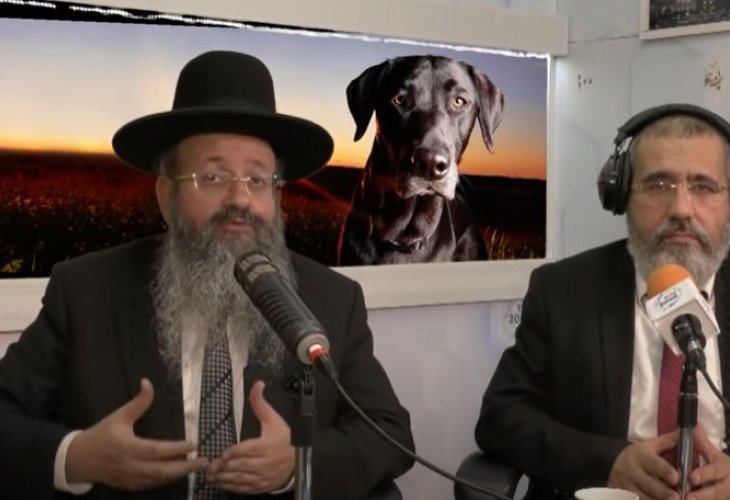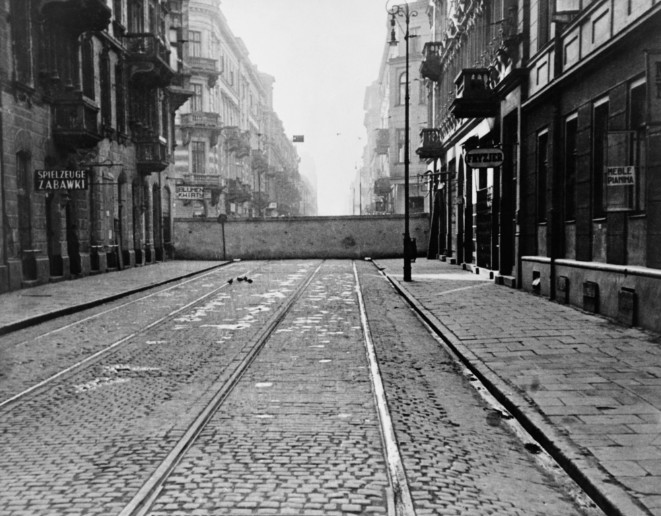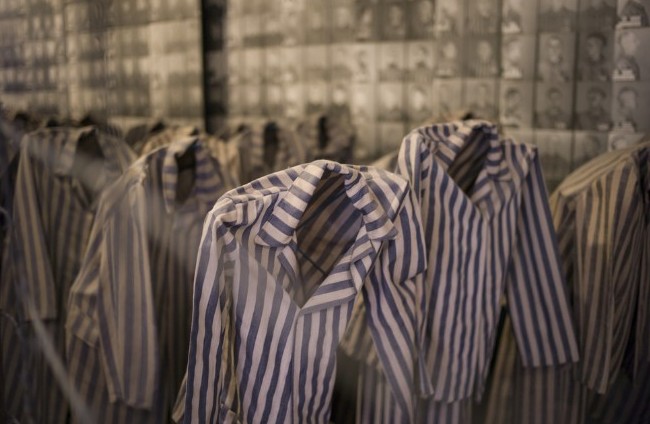The Holocaust
Holocaust Rescuers Recognized by Yad Vashem: Stories of Courage and Rescue
From the Warsaw Ghetto to rural France, meet the Righteous Among the Nations who hid Jews, led escape networks, and paid with their freedom
- Naama Green
- |Updated

1. Henk Drogt – A Dutch Policeman Who Refused to Arrest Jews
Henk Drogt, a Dutch policeman, refused to arrest Jews and send them to the train station. He also took part in smuggling Allied pilots across the Belgian border, helped Jews find hiding places, and joined other underground activities.
Because of his refusal, Drogt appeared on the German wanted list. He was caught in August 1943 and executed on April 14, 1944. In the death registry of the Oranjehotel prison in Scheveningen, a dry note reads: “Policeman, refused to arrest Jews.” It should be noted that Henk Drogt was a young man awaiting the birth of his first child.
Sixty-four years after his death, his son came to Jerusalem and received, in his name, the title Righteous Among the Nations.
 Warsaw Ghetto (Photo: shutterstock)
Warsaw Ghetto (Photo: shutterstock)2. Irena Sendler – “The Mother of the Children of the Warsaw Ghetto”
Known as “the mother of the children of the Warsaw Ghetto,” Irena Sendler saved the lives of 2,500 Jews in Poland. She did so with great courage, risking her own life and the lives of her family members.
Under Nazi occupation in Poland, the penalty for helping Jews was death. Polish society was, by and large, deeply antisemitic. In practice, Irena was not only on the Gestapo’s wanted list, but also on the hit list of an extremist Polish nationalist organization.
She succeeded thanks to a rescue network that included brave female couriers, social workers, volunteer Polish nurses, and the organization Żegota, founded during the war to aid Jews and made up of both Poles and Jews from various political parties.
By various means, Irena and her couriers smuggled children out of the Warsaw Ghetto to hiding places across Poland. The Gestapo eventually traced her activities. When she refused to reveal the names of the children she had saved or her “handlers,” she was sentenced to death. Her friends in Żegota managed to rescue her at the last moment, and as she left the infamous Pawiak prison, she saw posters on the streets of Warsaw bearing her portrait and announcing her execution.
Irena died in 2008, in poor health and recognized as a war invalid as a result of the torture she endured at the hands of the Gestapo. In 1965, Yad Vashem recognized her as Righteous Among the Nations.
3. André Trocmé – A Pastor Who Mobilized an Entire Village to Save Jews
André Trocmé was the spiritual leader of the Protestant community in Le Chambon-sur-Lignon, in the Haute-Loire region of southeastern France.
Trocmé encouraged his congregants to save the Jews in the area and when deportations from France began in 1942, he repeatedly urged the people of the village to aid any Jew seeking refuge. Soon, the village and its surroundings were filled with hundreds of Jews. Some found permanent shelter in the hills around Le Chambon, while others were hidden temporarily until they could cross the border — usually into neighboring Switzerland. Despite grave danger, Jews were sheltered in private homes and farms, as well as in public institutions and children’s homes. With the help of local residents, some Jews were escorted on dangerous footpaths to the Swiss border. The entire community rallied to save Jews, believing it their duty as devout Christians.
According to various estimates, about 5,000 Jews passed through Le Chambon and nearby villages by the end of the war. The villagers felt a moral obligation to help their “neighbors” in distress. Protestants themselves had been a persecuted minority in Catholic France, resulting in empathy for Jews as people of the Hebrew Bible, with a shared biblical heritage; and the leadership and personal example of Pastor André Trocmé and his wife, Magda.
The Vichy authorities suspected what was happening and such widespread activity could not be hidden for long. They demanded that the pastor stop, but his response was unequivocal: “These people came here to receive aid and shelter. I am their shepherd. A shepherd never abandons his flock… I do not know Jews. I know only human beings.” Trocmé and his community did not allow official pressure or security raids to weaken their resolve.
In 1971, André Trocmé was recognized as Righteous Among the Nations.
4. Daniel Trocmé – A School Principal Who Refused to Abandon His Students
Daniel Trocmé, the son of Pastor André Trocmé, was a non-Jewish principal of a Jewish school. Like his father, he was marked by profound humanity and refused to leave his students. Under the threat of machine guns, he was taken by the Germans together with 18 of his students to detention in the city of Moulins. Even in custody, he continued to show courage and bolstered his students’ spirits. Interrogated at the Gestapo headquarters in Moulins and accused of protecting a 16-year-old Jewish boy, he replied that he had simply defended someone helpless.
In August 1943, Daniel Trocmé was sent to the Compiègne internment camp, then deported to Dora, and from there to Majdanek. In April 1944, he was murdered in the gas chambers at Majdanek. He was only 34 years old.
On March 18, 1976, Yad Vashem recognized Daniel Trocmé as Righteous Among the Nations.
 (Photo: shutterstock)
(Photo: shutterstock)5. Lucien Bunel (Father Jacques) – A Priest and Headmaster Who Hid Jewish Students
Lucien Bunel, better known as Father Jacques, was a Carmelite priest and headmaster of the boarding school Petit Collège des Carmes in Avon, near Fontainebleau.
During the occupation, Father Jacques opened the school’s doors to those fleeing Nazi persecution. Three Jewish boys — Markus Halpern, David Schlosser, and Hans Helmut Michel, were admitted to the boarding school. Desperately seeking refuge, they were first placed with a family living across from the school, but Father Jacques later concluded it would be safer for them to remain inside the institution. They lived and studied there under aliases chosen by him. Father Jacques also hired a Jewish teacher, Lucien Weil, a science instructor who had lost his job at a Fontainebleau school due to Vichy laws barring the employment of Jewish teachers.
Under Father Jacques’s protection, the hidden Jews lived almost normal lives, until a winter day in January 1944, when arrests were made. On January 15, 1944, acting on precise information from an informer, a Gestapo unit arrived at the school gates. Without warning, they stormed the classrooms and arrested the three Jewish students, as well as Father Jacques himself. The boys were taken first to the Drancy transit camp and, on February 3, 1944 (Transport No. 67), deported to Auschwitz. Father Jacques was imprisoned, and the boarding school was closed by German order. That same day, Lucien Weil, his mother, and his sister were also arrested and deported to Auschwitz, where they perished.
Father Jacques was imprisoned in the Fontainebleau jail and later deported to Mauthausen. He survived until liberation, but the exhaustion from inhuman camp conditions overcame him, and a few days after liberation he passed away.
Because tragically none of those he hid survived, his story emerged only years later thanks to testimony from the sister of Hans Helmut Michel. She testified that not only had Father Jacques hidden her brother, he had also arranged two meetings between them during school holidays. In one meeting, the sister thanked the priest and said she doubted she would ever be able to pay for her brother’s schooling. Father Jacques replied that he expected nothing in return — neither then nor in the future, and that he hoped to see the boy continue his studies at the school after the war.
In 1988, filmmaker Louis Malle, an alumnus of the school, told The New York Times that this episode was “without a doubt the most powerful memory of my childhood… the one that remains clearest above all others.” He recalled how Father Jacques turned to the pupils as he was led away with the three Jewish boys and said: “Goodbye and so long. We’ll see each other again soon.” “Then,” Malle added, “something extraordinary happened. Someone began to applaud, and everyone joined in, despite the Gestapo shouting for silence.”
On January 17, 1985, Yad Vashem recognized Lucien Bunel (Father Jacques) as Righteous Among the Nations.

